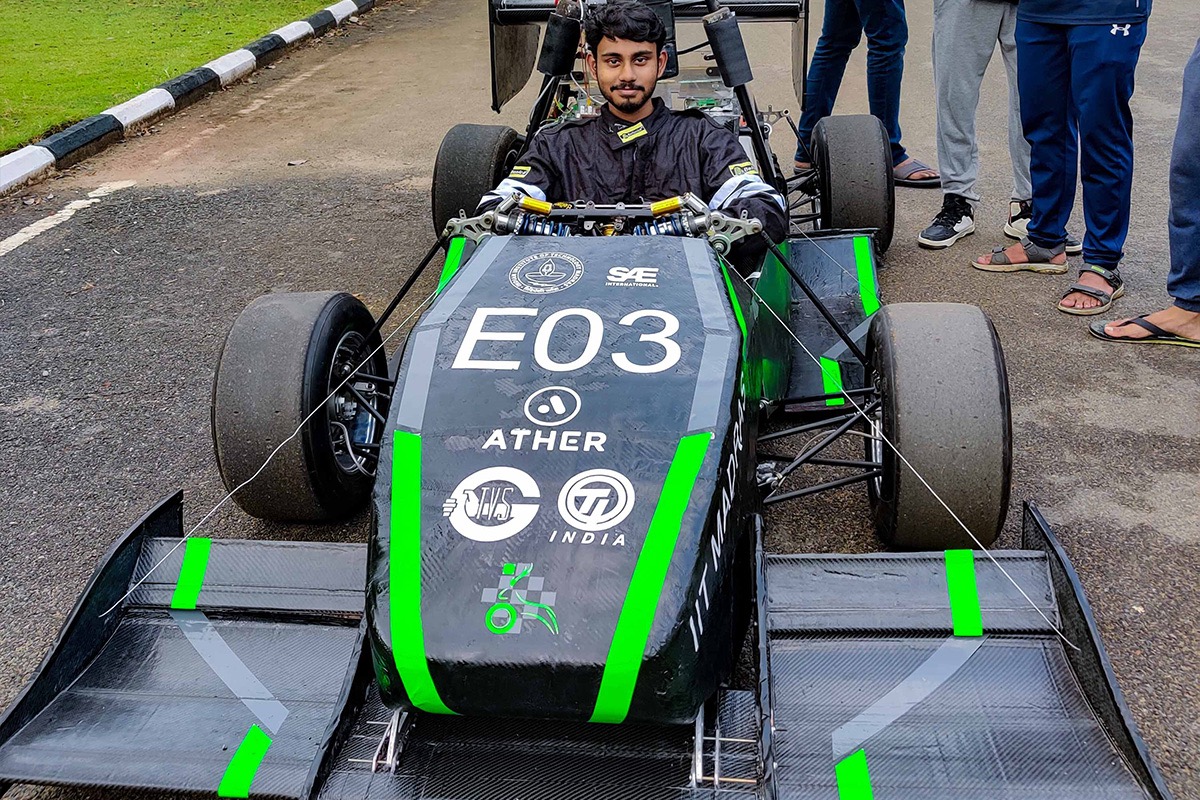

A group of students of Indian Institute of Technology (IIT), Madras launched its first electric formula racing car in Chennai on Monday, announcing that the driverless version of the racer will be ready by 2025.
The electric racing vehicle has been fully designed, manufactured, and tested by the students’ group Team Raftar in the last one year.
‘RF23’ is the electric model of its racing car powered by an internal combustion engine. “We expect to see significant improvements in speed and lap times compared to the earlier internal combustion engine model due to the higher power delivered by an electric drive,” a team member said.
As a formula student team, Raftar specializes in designing, building, and racing a high-performance race car every year to compete in formula student competitions against top engineering institutions across the world.
“Team Raftar aims to become the best Formula Student team in the world. It intends to promote Formula student culture in India with continuous innovation and sustainable technological advancement at its core.”
Team Raftar comprises 45 students from various disciplines and is one of the competition teams of Centre For Innovation (CFI) at IIT Madras.
IIT Madras director Prof V Kamakoti said, “The shift from combustion to the electric vehicle was just as drastic as it was necessary, keeping in line with the global trend of moving towards sustainable transportation. With the global electric vehicle industry still in its nascent state, the potential for growth and technological advancement in this arena is huge.”
The team will participate in the Formula Bharat event, scheduled to be held in January 2023 at the Kari Motor Speedway in Coimbatore. It also aims to take the electric car to the world’s most prestigious Formula Student event, Formula Student Germany in August, 2023 to pit itself against the best teams from around the world, vying for a place on the podium.
“Raftar will soon become a platform to build future innovations such as driverless cars and connected mobility technology. ‘RFR 23’ showcases the endless hours and efforts taken by each and every member of the team over the past year. This car is a culmination of the research, innovation, and persistence demonstrated by the team,” said Prof. Satyanarayanan Seshadri, faculty advisor, Team Raftar.
Elaborating on their key goals, team captain Karthik Karumanchi said, “Our primary focus is to build a safe, sustainable and reliable electric vehicle. We approached this goal by looking at the issues currently faced in the industry and trying to devise innovative solutions for them. We recognized the need for proper thermal management of the battery, a robust data logging and visualization interface, and a highly accurate State-of-charge estimator for the battery pack. We based our projects on finding solutions to these problems and incorporating them into ‘RFR 23’.”
Gaurika Bindal, a powertrain engineer and a Team Raftar member, said, “To coordinate the daunting task of building an entire vehicle easier, we divided ourselves into eight smaller groups focusing on a certain aspect of the car to fully optimize the system under them. These subsystems include aerodynamics, frame and composites, vehicle dynamics, drivetrain, accumulator (or battery systems), high voltage, and cooling systems, and low voltage systems.”
The students are in the process of incorporating India’s first indigenously made processor SHAKTI to achieve complete customizability with no external dependency. The focus is on cloud storage and processing, enabling seamless conversions of EVs to DV.
In line with this vision, Team Raftar is on its way towards developing its first driverless race car by 2025 and participating in the ‘driverless category’ of formula student events.